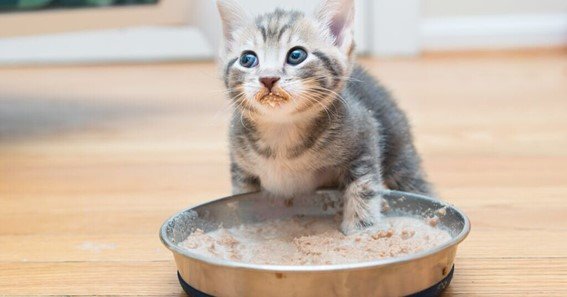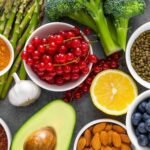As a kitten owner, one of the most exciting milestones is watching your little furball transition from milk to solid food. But the key question is, can kittens eat solid food, and if so, at what age is it safe to start? Knowing when and how to introduce solid food can ensure a smooth transition for your growing kitten. In this article, we’ll uncover the best practices for introducing solid food to kittens, the right timing, and how to ensure a balanced diet for their development.
Can Kittens Eat Solid Food Safely?
Yes, kittens can eat solid food safely as part of their natural weaning process, but the timing is crucial. Around 4 weeks of age, kittens start developing the ability to eat soft or moistened solid food. However, this should be done gradually and with appropriate kitten-specific food to ensure their nutritional needs are met.
When Can Kittens Start Eating Solid Food?
When can kittens start eating solid food? Typically, kittens can begin trying solid food at around 4 weeks old. At this stage, their mother’s milk or a milk replacer should still be the main source of nutrition, but introducing solid food to kittens can help them adjust to different textures and gradually transition from milk to solid meals.
Introducing Solid Food to Kittens
Kittens’ transition to solid food should be done carefully. Start by mixing wet kitten food with a small amount of water or kitten formula to create a soft, gruel-like consistency. This makes it easier for the kittens to eat. Over time, you can decrease the amount of liquid and introduce small amounts of dry food softened with water until they can chew solid kibble comfortably.
Solid Food in a Kitten’s Diet
When it comes to solid food in a kitten’s diet, it’s essential to choose the right food. The best solid food for kittens is formulated specifically to meet their nutritional needs, offering higher levels of protein and essential nutrients for growth. Avoid feeding them adult cat food, as it does not provide the right balance of nutrients for kittens.
Signs Kittens Are Ready for Solid Food
There are several signs kittens are ready for solid food, including chewing on the nipple during feeding, showing interest in their mother’s or sibling’s food, and being able to lap liquid from a bowl. These cues suggest that your kitten is ready to start the weaning process.
Kittens’ Reaction to Solid Food
Kittens’ reaction to solid food varies. Some may take to it quickly, while others may be more hesitant. It’s important to introduce it slowly and monitor how they respond. If your kitten seems to struggle with solid food, consider softening it with more water or formula until they adjust.
FAQ
- Can kittens eat solid food safely?
Yes, kittens can eat solid food safely from around 4 weeks of age, but it should be introduced gradually and in a softened form at first. - When can kittens start eating solid food?
Kittens typically start eating solid food at 4-5 weeks of age as they begin the weaning process, but milk or formula should still be provided. - What is the best solid food for kittens?
The best solid food for kittens is high in protein and nutrients, specifically formulated for kittens, such as Royal Canin Kitten or Hill’s Science Diet Kitten. - How do I introduce solid food to my kitten?
Start by mixing wet food with water or formula to create a soft, gruel-like consistency, gradually increasing the solid food content as the kitten adjusts. - Should kittens eat solid food exclusively?
Not at first. During the transition, kittens should still have access to their mother’s milk or a milk replacer until they can handle solid food exclusively.
In conclusion, can kittens eat solid food? Yes, they can, but it’s important to introduce it at the right age and in the correct way. Gradual weaning, starting with softened food, will ensure your kitten adapts well to solid meals and receives the nutrition they need for healthy growth.










